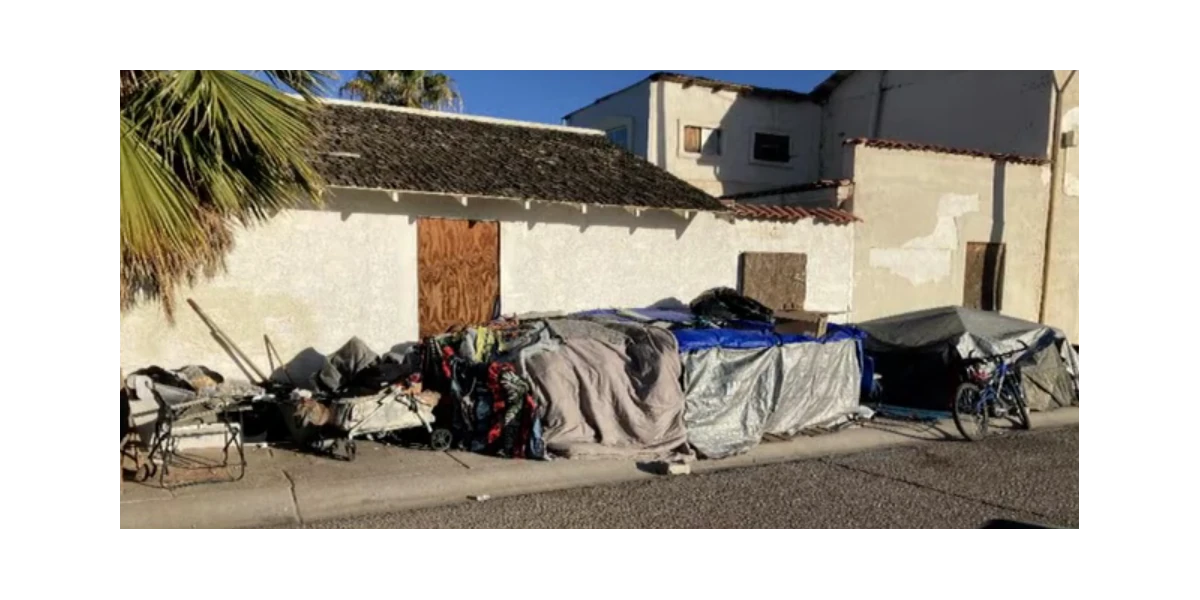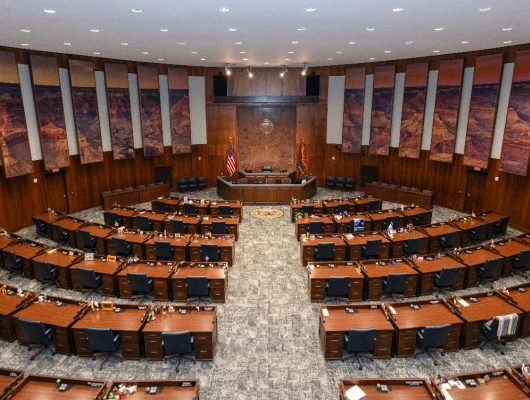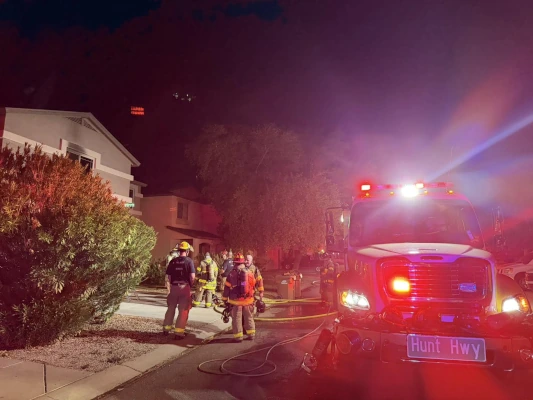The Casa Grande City Council voted on July 21st to approve Ordinance No. 1397.19, establishing new regulations on urban camping and storage of personal belongings on public property that will restrict where individuals can sleep on public property, including those experiencing homelessness. The ordinance will take effect October 1, 2025.
The Ordinance Details
The new Chapter 12.08 of the Casa Grande Municipal Code prohibits camping on public property unless expressly designated as a permitted campsite. The ordinance defines camping as using property for living accommodation purposes, including activities such as using tents or shelters for sleeping, making preparations to sleep, storing personal belongings, making fires outside designated areas, conducting cooking activities, and digging or earth breaking.
The law also prohibits camping within 500 feet of schools, childcare facilities, shelters, or parks. On private property, camping is restricted under several circumstances. It is prohibited when it constitutes a nuisance due to noise or inadequate sanitation. Camping is also banned when it lacks proper zoning authorization or when the frequency, intensity, or duration violates the city’s zoning ordinance. The ordinance prohibits collecting unauthorized fees for camping privileges. Additionally, camping is banned where it conflicts with city codes governing mobile homes, recreational vehicles, buses, haulers, camping trailers, or other conveyances. Finally, camping is prohibited in parking lots of commercial, religious, healthcare, educational, or other similar establishments—regardless of owner permission—unless the property is specifically zoned for camping and has approved water and wastewater disposal facilities and other required utilities.
Violations constitute a Class 3 misdemeanor, with each day of continued violation counting as a separate offense. The ordinance allows courts to sentence violators to community service, education, or treatment programs instead of traditional penalties. Police officers retain discretion in determining whether to cite, arrest, warn, or otherwise address alleged violations based on training and circumstances.
Public Concerns Raised During Second Reading
Monday’s meeting marked the second reading of the ordinance, which was pulled from the consent agenda to allow public comment. Barry Northup, a military veteran and member of Crossroads Church who helps with the church’s food pantry, spoke about his concerns for the community’s homeless population.
Northup expressed worry about the city’s provisions for helping less fortunate residents. He shared experiences from California where people faced difficulties accessing services and appearing in court due to lack of transportation. He asked the council about the city’s stance on providing adequate services for the homeless community.
City Officials Outline Purpose and Services
Deputy City Manager Steven Weaver explained the ordinance’s intent during the meeting. “The purpose of the ordinance is not to be heavy-handed,” Weaver said. “We do have services. We have several nonprofits in the community that are helping the homeless as we speak.”
Weaver noted that the city has dedicated a staff person to help coordinate homeless services and work with nonprofit organizations. He explained that certain areas where homeless individuals gather have created safety issues in parks, making some residents feel unsafe.
“We need to have some mechanism to be able to move them to a different location,” Weaver said. He added that the city is actively looking for a spot where homeless individuals could stay, though they haven’t found that location yet.
Mayor Lisa Navarro Fitzgibbons provided additional context about the city’s ongoing efforts. She described previous initiatives, including the iHelp program (interfaith homeless emergency lodging program) that involved Crossroads Church. The program initially served 10-12 people but eventually saw no participants for months, leading the city to pause it.
The mayor said a CG Helps Coalition now meets monthly to coordinate different programs. Since the ordinance’s introduction, another group of nonprofit stakeholders has formed and meets monthly to continue discussions.
Current Services and Future Plans
Mayor Pro-Tem Matt Herman discussed the cooling stations available in the community. The city currently operates 12 cooling stations through a combination of city resources and nonprofits. These stations remain open until 5:00 to 7:00 PM at night depending on location
Barbara Sundust, who operates Laundry Love services for the homeless community, addressed three main needs: a campground or shelter with nighttime accommodation, showers and restrooms; cooling stations; and a shelter specifically for women. At their last Laundry Love event, volunteers served 89 people and completed 538 loads of laundry at a cost of $1,374.
Sundust emphasized employment challenges facing homeless individuals. “You just can’t get jobs if you’re living in your car. It’s just not going to work,” she said. She advocated for case managers, resource help, and life skills groups to help people find employment.
Sundust also mentioned investigating potential shelter locations, including contacting Banner Health about possibly using the Pavilion as a women’s shelter.
Enforcement and Property Seizure
The ordinance includes provisions for property removal, giving individuals 24 hours to remove camping equipment, camp paraphernalia, gear, personal belongings, vehicles, or structures after receiving a citation or warning. The city may seize and destroy hazardous or bulky items, debris, or trash after this period, while other personal property will be stored for 10 days before disposal.
Continued Stakeholder Engagement
City officials indicated they plan to use the time before the October 1 effective date to continue working with stakeholders and seeking solutions. The council has visited Phoenix to study their Phoenix Cares homeless program and continues meeting with service providers to develop comprehensive approaches to the issue.








